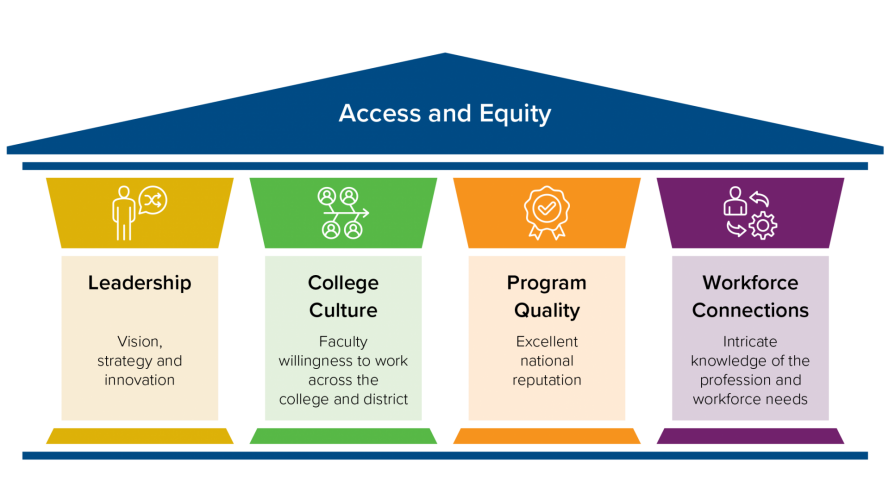A research team at UCLA has analyzed multiple data sources to
assemble a comprehensive portrait of participation and outcomes
in community college baccalaureate (CCB) degree programs across
California. This relatively new public college pathway to a
four-year degree marks a significant change in a state where
previously such degrees were only available from the California
State University and University of California.
In Benefits
and Opportunities: California’s Community College
Baccalaureate Programs, authors Hai Hoang, Davis Vo and
Cecilia Rios-Aguilar examine growth in enrollment since program
inception in 2016. They also report disaggregated graduation
outcomes and student-reported employment and income gains
post-degree, while identifying data needs and recommending a more
intentional focus on the program’s opportunity to narrow
attainment gaps.
Download and read the brief (PDF).
In
Pioneering the Community College Baccalaureate in California: The
Experience of West LA College, authors Aracely Aguiar, Carmen
Dones, Patricia Quiñones, Cecilia Rios-Aguilar, Liza Chavac and
Patrosinio Cruz provide a detailed accounting of the development
of the dental hygiene baccalaureate program at West Los Angeles
College, capturing important implementation lessons for other
community colleges considering baccalaureate programs (including
WLAC’s “four pillars of access and equity,” below).
Download and read the brief (PDF).
